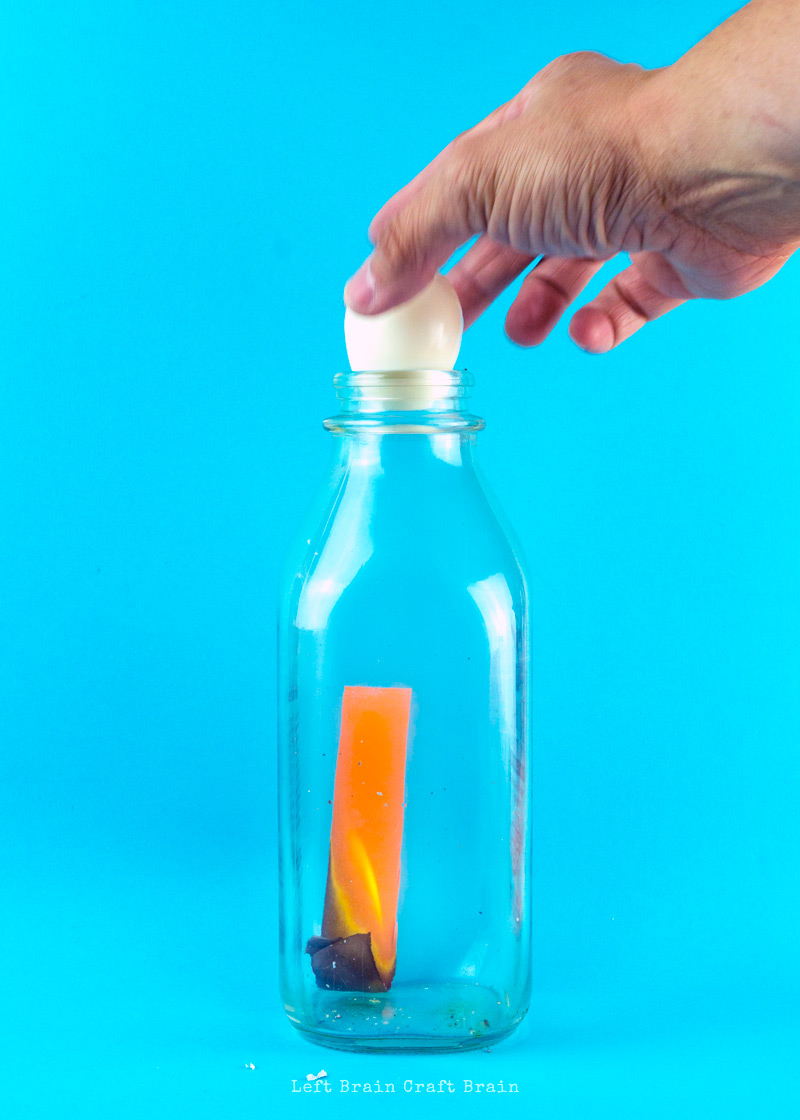Static electricity experiment for kids
If you’re searching for static electricity experiment for kids images information connected with to the static electricity experiment for kids keyword, you have come to the ideal blog. Our website always gives you suggestions for refferencing the maximum quality video and image content, please kindly surf and locate more informative video content and graphics that match your interests.
Static Electricity Experiment For Kids. Charge a comb by rubbing it against your head then use it to bend a stream of water from a faucet. Rub the surface of the rod with the cloth for 40 seconds. Static electricity is called static electricity because the charge stays in a certain area for a period of time rather than flowing elsewhere. This is a great example.
 Easy Static Electricity Experiment For Kids From premeditatedleftovers.com
Easy Static Electricity Experiment For Kids From premeditatedleftovers.com
When you rub the balloons against your hair or the fabric they become negatively charged they have taken some of the electrons from the hair fabric and left them positively charged. Static electricity science experiment. Other tiny objects like dirt or tiny sequins smooth surface. Make sure the cans are empty and the balloons are inflated before the kids begin. Frugal fun for boys and girls shows how to bend water using static electricity. It is a very simple.
The smaller the better.
Hold the cloth close to the can without touching it and watch as it follows the movement of the rod. The cans go on the floor. Static electricity science experiment. Separate salt and pepper with a magic spoon. Frugal fun for boys and girls shows how to bend water using static electricity. Place the can on a flat and smooth surface.
 Source: youtube.com
Source: youtube.com
There are different types of electricity and today we are showing you five simple experiments with static electricity you could do at home. Static electricity experiment this experiment of static electricity is great fun for school kids. Hold the cloth close to the can without touching it and watch as it follows the movement of the rod. Next lay them on a smooth surface like a table. This experiment shows children the power of static electricity first hand.
 Source: premeditatedleftovers.com
Source: premeditatedleftovers.com
Most static electricity experiments are quick and easy enough for anyone to try at home. There are different types of electricity and today we are showing you five simple experiments with static electricity you could do at home. Rubbing the balloons against the woolen fabric or your hair creates static electricity. Hold the cloth close to the can without touching it and watch as it follows the movement of the rod. Static electricity science experiment.
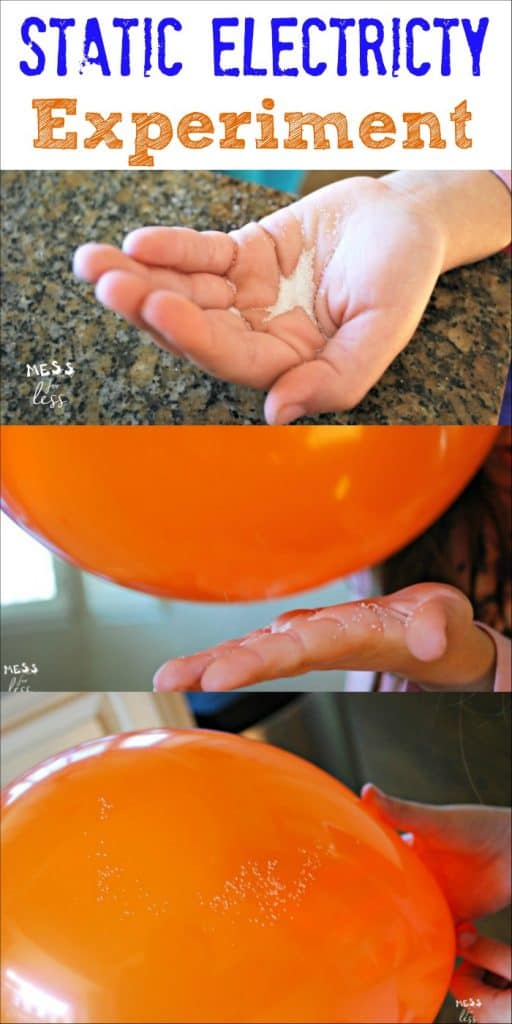 Source: messforless.net
Source: messforless.net
Static electricity experiment this experiment of static electricity is great fun for school kids. Next lay them on a smooth surface like a table. Rub the surface of the rod with the cloth for 40 seconds. The kids then rub the balloons around on their hair as quickly as they can. Static electricity experiment this experiment of static electricity is great fun for school kids.
 Source: pinterest.ie
Source: pinterest.ie
When you rub the balloons against your hair or the fabric they become negatively charged they have taken some of the electrons from the hair fabric and left them positively charged. However be sure to always have a parent or teacher supervising to make sure things are safe. Most static electricity experiments are quick and easy enough for anyone to try at home. This involves negatively charged particles electrons jumping to positively charged objects. There are different types of electricity and today we are showing you five simple experiments with static electricity you could do at home.
 Source: pinterest.com
Source: pinterest.com
This experiment helps develop scientific inquiry skills and investigates the properties of static electricity and charge. Make sure the cans are empty and the balloons are inflated before the kids begin. The kids then rub the balloons around on their hair as quickly as they can. Separate salt and pepper with a magic spoon. Try our jumping tissue paper frogs experiment.
 Source: adabofgluewilldo.com
Source: adabofgluewilldo.com
Make sure the cans are empty and the balloons are inflated before the kids begin. We see static el. The smaller the better. This involves negatively charged particles electrons jumping to positively charged objects. Make sure the cans are empty and the balloons are inflated before the kids begin.
 Source: pinterest.com
Source: pinterest.com
We see static el. Science projects and experiments can be fun. Charge a comb by rubbing it against your head then use it to bend a stream of water from a faucet. Place the can on a flat and smooth surface. This is a great example.
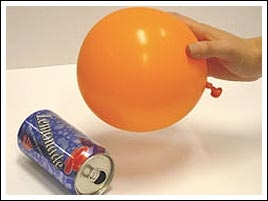 Source: kidspot.co.nz
Source: kidspot.co.nz
Static electricity science experiment. Most static electricity experiments are quick and easy enough for anyone to try at home. We see static el. This experiment helps develop scientific inquiry skills and investigates the properties of static electricity and charge. Water optional first tear the toilet paper into tiny pieces.
 Source: youtube.com
Source: youtube.com
This is a great example. Hold the cloth close to the can without touching it and watch as it follows the movement of the rod. When you rub the balloons against your hair or the fabric they become negatively charged they have taken some of the electrons from the hair fabric and left them positively charged. The cans go on the floor. However be sure to always have a parent or teacher supervising to make sure things are safe.
 Source: pinterest.com
Source: pinterest.com
Static electricity experiment this experiment of static electricity is great fun for school kids. This experiment shows children the power of static electricity first hand. Frugal fun for boys and girls shows how to bend water using static electricity. It is a very simple. Static electricity science experiment.
 Source: planningplaytime.com
Source: planningplaytime.com
The cans go on the floor. Separate salt and pepper with a magic spoon. This experiment helps develop scientific inquiry skills and investigates the properties of static electricity and charge. Static electricity experiment this experiment of static electricity is great fun for school kids. This experiment shows children the power of static electricity first hand.
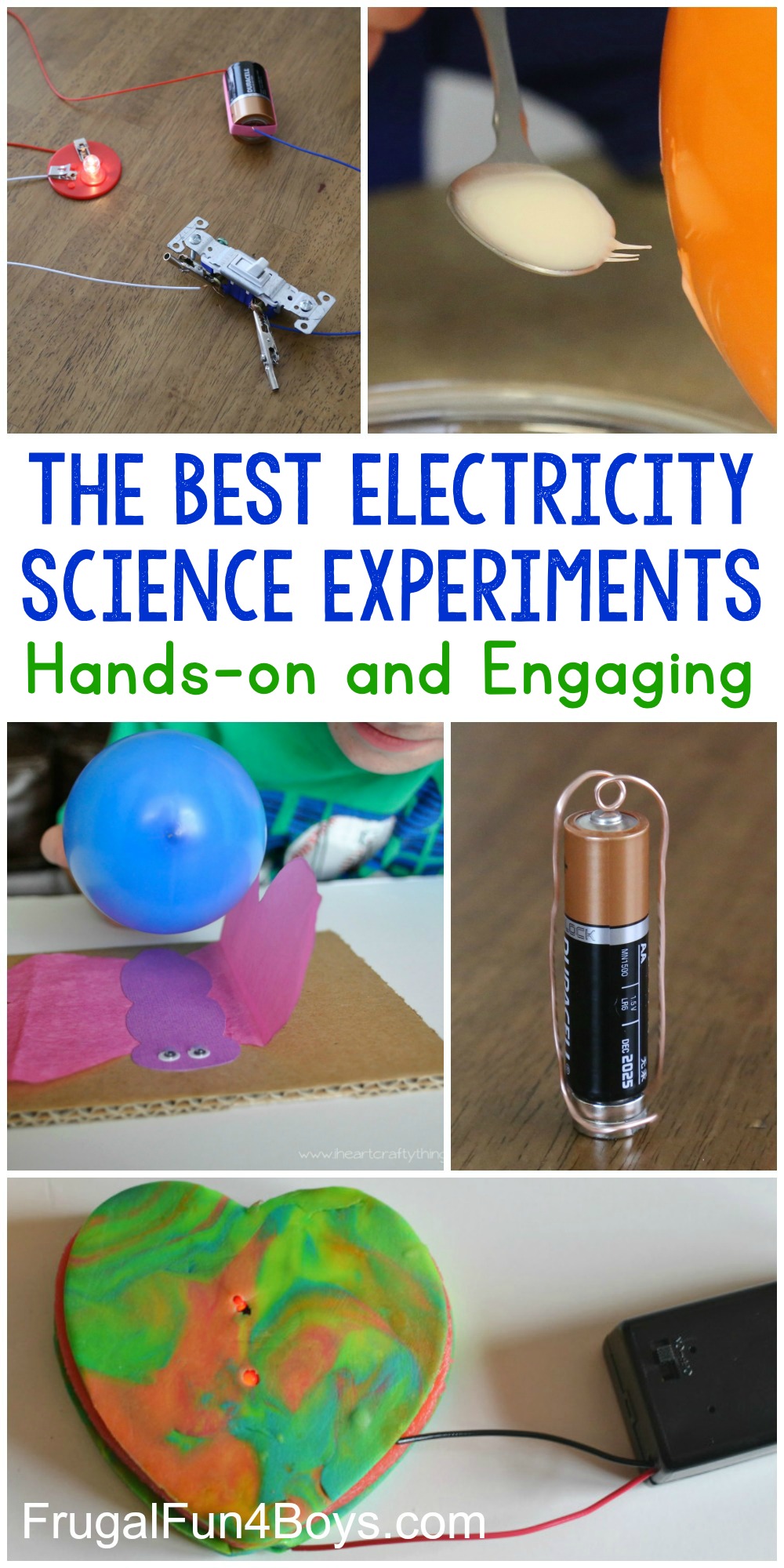 Source: frugalfun4boys.com
Source: frugalfun4boys.com
Try our jumping tissue paper frogs experiment. More static electricity experiments for kids. Separate salt and pepper with a magic spoon. Next lay them on a smooth surface like a table. The cans go on the floor.
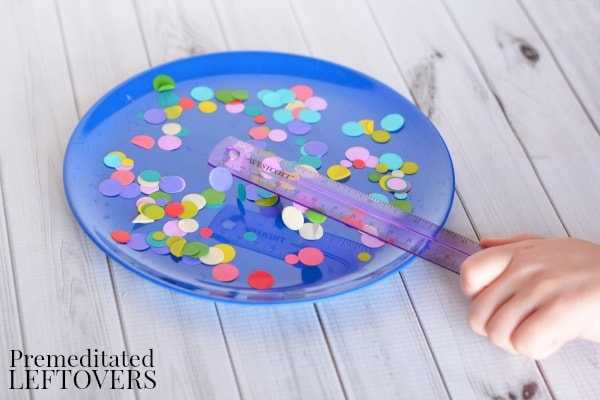 Source: premeditatedleftovers.com
Source: premeditatedleftovers.com
Frugal fun for boys and girls shows how to bend water using static electricity. Next lay them on a smooth surface like a table. Rubbing the rod with the cloth creates static electricity. Most static electricity experiments are quick and easy enough for anyone to try at home. Make sure the cans are empty and the balloons are inflated before the kids begin.
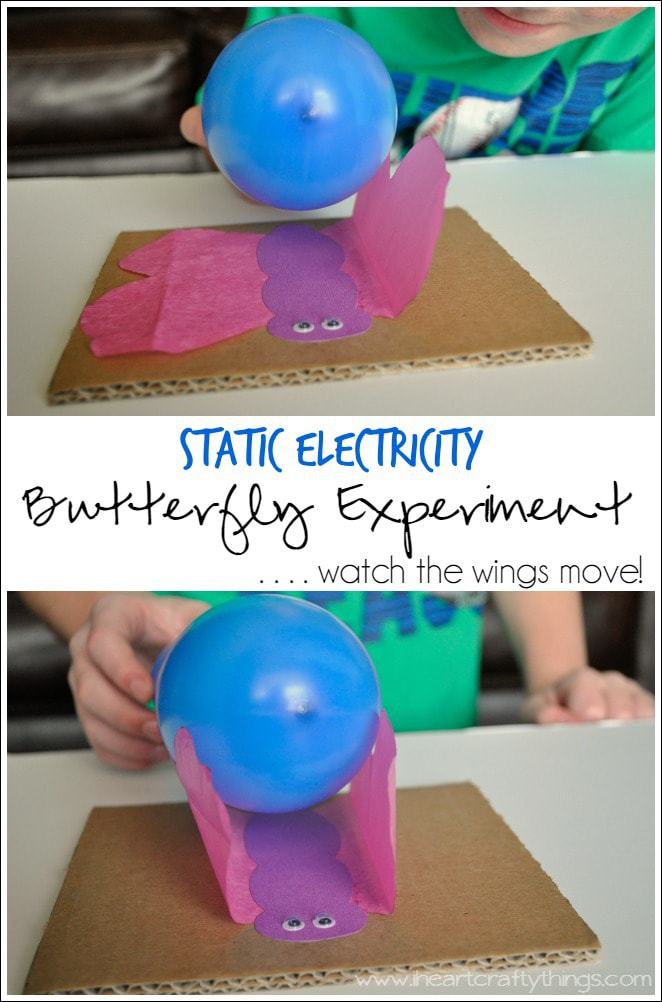 Source: iheartcraftythings.com
Source: iheartcraftythings.com
Make sure the cans are empty and the balloons are inflated before the kids begin. Most static electricity experiments are quick and easy enough for anyone to try at home. Static electricity is called static electricity because the charge stays in a certain area for a period of time rather than flowing elsewhere. Try our jumping tissue paper frogs experiment. Place the can on a flat and smooth surface.
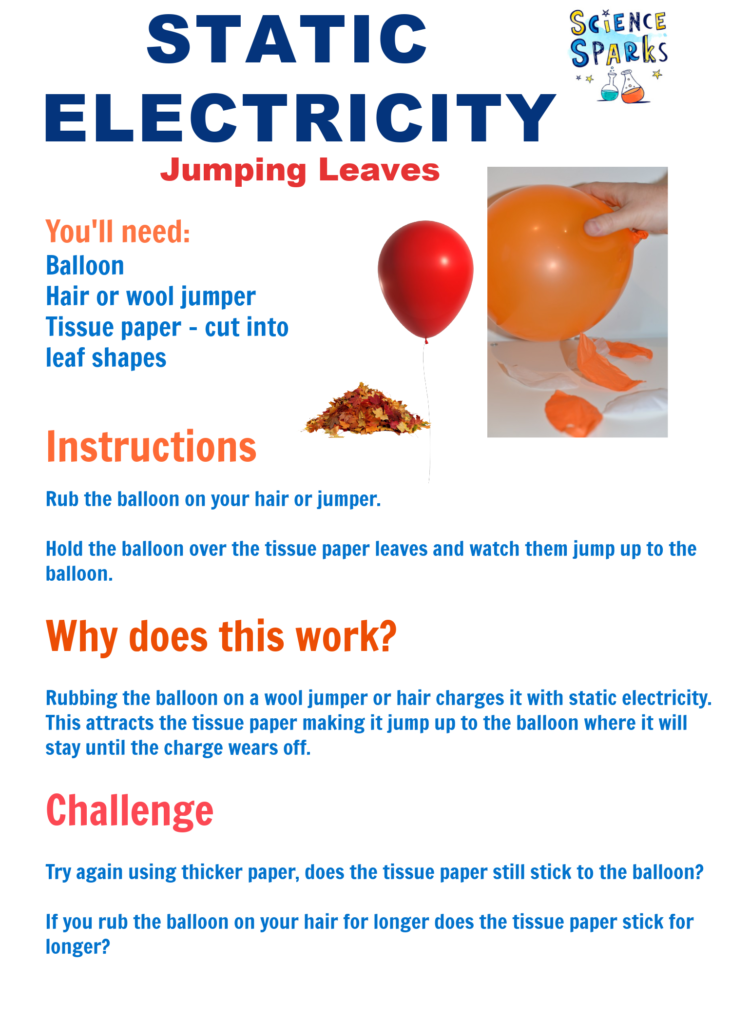 Source: science-sparks.com
Source: science-sparks.com
Water optional first tear the toilet paper into tiny pieces. Hi kids parents and teachers. More static electricity experiments for kids. Frugal fun 4 boys and girls. Other tiny objects like dirt or tiny sequins smooth surface.
If you find this site beneficial, please support us by sharing this posts to your own social media accounts like Facebook, Instagram and so on or you can also save this blog page with the title static electricity experiment for kids by using Ctrl + D for devices a laptop with a Windows operating system or Command + D for laptops with an Apple operating system. If you use a smartphone, you can also use the drawer menu of the browser you are using. Whether it’s a Windows, Mac, iOS or Android operating system, you will still be able to bookmark this website.


